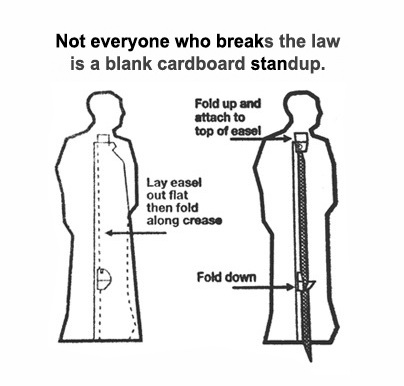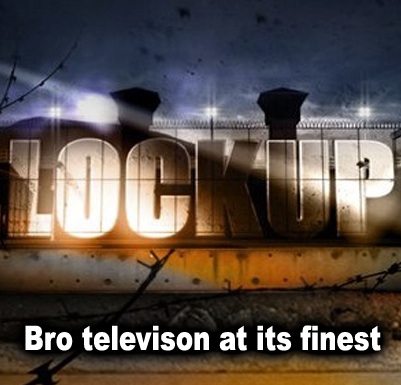 Heart and humanity must now evolve into the new prison reality….
Heart and humanity must now evolve into the new prison reality….
Just yesterday, a stranger told me he’d heard the words “prison rehabilitation” more times in the last two months than ever before in his life. My first reaction was that sentiments like his will only become more common as Americans adapt to new representations of incarceration and the incarcerated, and as the dialogue on prison reform becomes an increasingly pressing topic in Washington, at the state level, and in so many of our social and cultural realms.
At the same time, the implication that criminal offenders are (usually) people too causes friction as it rubs up against the manner in which we’ve been trained to recognize prison — narrowly, dismissively, and neglectfully.
I began this blog in 2010, when Where Excuses Go to Die was still a manuscript. I intended to blog about excuses made daily by celebrities, politicians, and whoever else was unlucky enough to publicly display poor coping skills. I’ve had a lot of fun with the sarcasm, not to mention with challenging people’s comfort zones and entitlements.
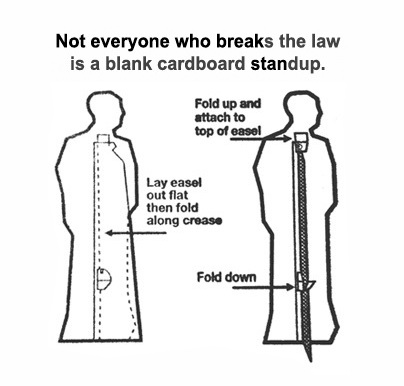 I’ve also worked to defy the public’s proclivity for dismissing the incarcerated as “those people”; as scumbags who must deserve whatever they’re getting, “or why else would they be locked up?” Inmates are easily and often blamed for poor public policy decisions relating to criminal justice, overcrowding, and crappy conditions, but a lot less noise is made about milestone-based education and genuine rehabilitation. I’m not only for both, I’m a product of them.
I’ve also worked to defy the public’s proclivity for dismissing the incarcerated as “those people”; as scumbags who must deserve whatever they’re getting, “or why else would they be locked up?” Inmates are easily and often blamed for poor public policy decisions relating to criminal justice, overcrowding, and crappy conditions, but a lot less noise is made about milestone-based education and genuine rehabilitation. I’m not only for both, I’m a product of them.
Yet if I had a nickel for every time I’ve heard, “or why else would they be locked up?” I could move to the south of France, decide it sucks, relocate to Switzerland, then pull a U-turn and move back here to LA. In this housing market.
For too long, the public’s understanding of our justice system has come from preposterous media representations. This exploded with prison documentary TV, edited to highlight the screamer in the box spitting, shouting, and finally being subdued by six guards. These shows, this “inmate blackface,” as I call them, are entirely exploitive. They ignore rehabilitation completely, reinforcing narrow beliefs that put us farther from each other and from understanding what people face when released from a custody environment. And I’ve said it before, but I’ll say it again: When someone goes to prison only to emerge a worse criminal, taxpayers aren’t getting what they paid for.
 When I began this journey, hoping my fresh take on the prison narrative would appeal to others, I could count from 8-12 inmate blackface jail shows listed in my cable guide on any given day. Inside American Jail, Lockup, Lockdown, Las Vegas Jailhouse, America’s Hardest Prisons, First Week In, Torture: America’s Brutal Prisons, and so forth. They’re all the same, with producers eager to prove they’re delivering bona fide hard-core prison. And still, they can’t scratch the surface of the heart and humanity that also exists inside (hmm…can’t, or won’t?). Having spent four years of my life experiencing every conceivable prison cliché, miracle, and monster, nothing is more offensive than inmate blackface masquerading as documentary. In the immortal words of George Carlin, “It’s all bullshit, and it’s bad for you.”
When I began this journey, hoping my fresh take on the prison narrative would appeal to others, I could count from 8-12 inmate blackface jail shows listed in my cable guide on any given day. Inside American Jail, Lockup, Lockdown, Las Vegas Jailhouse, America’s Hardest Prisons, First Week In, Torture: America’s Brutal Prisons, and so forth. They’re all the same, with producers eager to prove they’re delivering bona fide hard-core prison. And still, they can’t scratch the surface of the heart and humanity that also exists inside (hmm…can’t, or won’t?). Having spent four years of my life experiencing every conceivable prison cliché, miracle, and monster, nothing is more offensive than inmate blackface masquerading as documentary. In the immortal words of George Carlin, “It’s all bullshit, and it’s bad for you.”
The real reality is that the world behind bars is one rich in creativity, misguided intelligence, disregarded and wasted potential, and of course, evil mutherfuckers who should never see a public sidewalk again. The lessons I learned and the things I discovered in myself apply, all these years later, almost daily. Prison was the worst thing I’ve ever done to myself and my family, but it also had the greatest impact on my character, emotional intelligence, and sense of self direction. I attribute most of this to finally learning the benefits of creating and maintaining a relationship with delayed gratification.
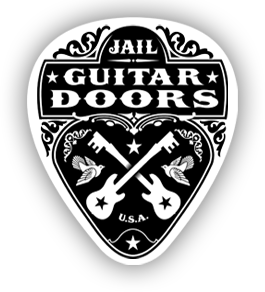
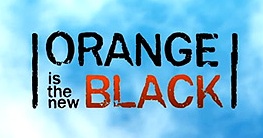 Wayne Kramer and Billy Bragg, who founded Jail Guitar Doors to bring musicians, instruments, and music to inmates, are among those I’ve admired on this journey. I’m a fan of Orange is the New Black, both the book and the Netflix show, so naturally I’m an admirer of Piper Kerman, who single-handedly dragged an otherwise immovable spotlight to shine on prison issues. Kerman’s platform is far larger than mine (but she follows me on Twitter hee-hee!) and she uses it inspirationally and with class. This stands in contrast to celebrities who’ve aligned themselves with the “cause” of prison reform to boost their own profiles. But even coming to terms with this less-than-tactful element is a tiny irritation in exchange for the attention being paid to wrongful convictions, 3-strikes law, botched executions, negligent prosecution, DNA exoneration, attorney misconduct, felony disenfranchisement, sexual assault in jails, overcrowding, private prisons, immigrant detention centers, and the big daddy of ’em all: America’s predilection for incarcerating its way out of crime – starting with black people.
Wayne Kramer and Billy Bragg, who founded Jail Guitar Doors to bring musicians, instruments, and music to inmates, are among those I’ve admired on this journey. I’m a fan of Orange is the New Black, both the book and the Netflix show, so naturally I’m an admirer of Piper Kerman, who single-handedly dragged an otherwise immovable spotlight to shine on prison issues. Kerman’s platform is far larger than mine (but she follows me on Twitter hee-hee!) and she uses it inspirationally and with class. This stands in contrast to celebrities who’ve aligned themselves with the “cause” of prison reform to boost their own profiles. But even coming to terms with this less-than-tactful element is a tiny irritation in exchange for the attention being paid to wrongful convictions, 3-strikes law, botched executions, negligent prosecution, DNA exoneration, attorney misconduct, felony disenfranchisement, sexual assault in jails, overcrowding, private prisons, immigrant detention centers, and the big daddy of ’em all: America’s predilection for incarcerating its way out of crime – starting with black people.
Now before you write me off as some bleeding heart liberal who’s hoping you’ll feel sorry for criminal offenders, just know that I’m a guy who’s looked around a prison yard and decided that if these are the idiots they’re locking up and clogging the court system with, then they’re doing a damn fine job. I sure don’t want to run into these guys again!
 But that was the perspective of someone whose greatest hope at the time was to avoid reoffending. These days, I take the slightly more sophisticated view that our prison system is scamming taxpayers. We’re spending more and more, while under the guise of cost-savings we’re undercutting programs that could help reverse our alarming rates of incarceration, such as inmate advisory councils, honor yards, and real prisoner education opportunities.
But that was the perspective of someone whose greatest hope at the time was to avoid reoffending. These days, I take the slightly more sophisticated view that our prison system is scamming taxpayers. We’re spending more and more, while under the guise of cost-savings we’re undercutting programs that could help reverse our alarming rates of incarceration, such as inmate advisory councils, honor yards, and real prisoner education opportunities.
The corporate prison industry is just about the worst entity that exists in America, second only, in my opinion, to the insidious snake of heroin. Yet for every golf-course-owning, detention-for-profit-loving executive out there paying judges to sentence inmates to their privately owned facilities, there are countless County and State employees struggling under bumbling, inept, and buck-passing government bureaucrats.
And for every private prison lobbyist in Washington, there are maybe ten civilian teachers and prison educators truly attempting to reach at least one inmate. I’m here to tell you, there are people who lose sleep over stuff like this, and they’re the ones to focus on.
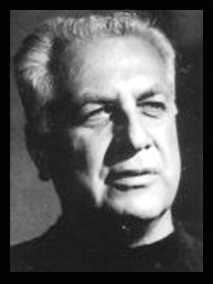
 The decisions I make, the quality of my life, and the person I am today are largely owed to people like playwright, author, and former penitentiary writing instructor David Scott Milton; pre-release instructor Chuck Hildebrandt; the late comedienne and erstwhile mentor Lotus Weinstock; LA County Men’s Central Jail Chaplain William McKinley; jail hobby shop monitor Gary Palmer; two Associate Wardens; and about 15 career corrections officers who, sometimes without knowing it, encouraged me to push myself for the better. In a million years, I couldn’t make up the things I experienced while incarcerated or the level of generosity I witnessed from these and others. The greatest advantage I had as an inmate –working day by day to survive and understand concepts like excuses and personal accountability– was the degree of emotional intelligence that was suddenly attainable because of these employees and guards.
The decisions I make, the quality of my life, and the person I am today are largely owed to people like playwright, author, and former penitentiary writing instructor David Scott Milton; pre-release instructor Chuck Hildebrandt; the late comedienne and erstwhile mentor Lotus Weinstock; LA County Men’s Central Jail Chaplain William McKinley; jail hobby shop monitor Gary Palmer; two Associate Wardens; and about 15 career corrections officers who, sometimes without knowing it, encouraged me to push myself for the better. In a million years, I couldn’t make up the things I experienced while incarcerated or the level of generosity I witnessed from these and others. The greatest advantage I had as an inmate –working day by day to survive and understand concepts like excuses and personal accountability– was the degree of emotional intelligence that was suddenly attainable because of these employees and guards.
 There were inmates, too, who made sacrifices on my behalf, put me ahead of others in line, scolded me in the spirit of personal growth, and showed me how to protect myself from predators, including me. These were good, conflicted, and deeply injured human beings who showed me that real rehabilitation is only possible once you get over yourself. Like me, most hoped to take advantage of a second chance; others wanted to live a better life despite never going home. And sure, there were assholes you’d have to see to believe, but a copy of Where Excuses Go to Die is a fine, fine alternative to getting locked up in order to meet them. I wrote it to honor these men and women, and to offer the public stories of the men from whom I learned so much about life. To this day, I remain devastated by what I heard and how much I grew when I finally shut up and started listening to others.
There were inmates, too, who made sacrifices on my behalf, put me ahead of others in line, scolded me in the spirit of personal growth, and showed me how to protect myself from predators, including me. These were good, conflicted, and deeply injured human beings who showed me that real rehabilitation is only possible once you get over yourself. Like me, most hoped to take advantage of a second chance; others wanted to live a better life despite never going home. And sure, there were assholes you’d have to see to believe, but a copy of Where Excuses Go to Die is a fine, fine alternative to getting locked up in order to meet them. I wrote it to honor these men and women, and to offer the public stories of the men from whom I learned so much about life. To this day, I remain devastated by what I heard and how much I grew when I finally shut up and started listening to others.
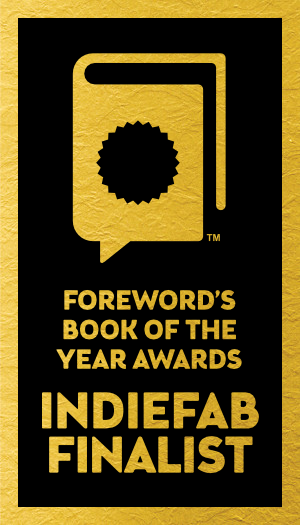 Speaking of the book, I’m headed to Vegas this weekend for the national American Library Association conference, where the trade magazine ForeWord Reviews will announce the winners of its 2013 IndieFab Book of the Year Awards. Where Excuses Go to Die has been nominated, and while my fingers are crossed, I’ve already won. The number of rape ‘n riots prison shows has dwindled recently, and folks are hearing the word “rehabilitation” more than ever.
Speaking of the book, I’m headed to Vegas this weekend for the national American Library Association conference, where the trade magazine ForeWord Reviews will announce the winners of its 2013 IndieFab Book of the Year Awards. Where Excuses Go to Die has been nominated, and while my fingers are crossed, I’ve already won. The number of rape ‘n riots prison shows has dwindled recently, and folks are hearing the word “rehabilitation” more than ever.
Plus, I’ve become an active voice in the fight against the inhumanity of 24-minute-long prison TV that perpetuates inmate blackface. I can’t single-handedly change public policy, but I can help change public perception.
Check me out later today on Cyrus Webb’s Conversations LIVE on WMPR 90.1 FM in Jackson, Mississippi — 5 pm Pacific, 8 pm Eastern. (Live streams here and here.) And watch my Tweets for updates during the conference (@defcon_john).
.

